Your How does the small intestine work images are ready. How does the small intestine work are a topic that is being searched for and liked by netizens now. You can Find and Download the How does the small intestine work files here. Find and Download all free photos and vectors.
If you’re looking for how does the small intestine work pictures information related to the how does the small intestine work topic, you have come to the right blog. Our site always provides you with suggestions for viewing the maximum quality video and image content, please kindly surf and locate more enlightening video articles and graphics that fit your interests.
How Does The Small Intestine Work. The food then passes through the jejunum and. The small intestine breaks down food from the stomach and absorbs much of the nutrients from the food. That means that several different kinds of villi will grab the. This is what keeps the intestinal contents moving along the intestinal tract for proper digestion and absorption of nutrients.
 Slide Show See How Your Digestive System Works Mayo Clinic From mayoclinic.org
Slide Show See How Your Digestive System Works Mayo Clinic From mayoclinic.org
The small intestine carries out most of the digestive process absorbing almost all of the nutrients you get from foods into your bloodstream. This means there is a lower amount of cholesterol stored in the liver which leads to more cholesterol being cleared from the blood and results in lower blood cholesterol levels. What does the small intestine do. These folds are covered with villi or tiny projections that have even smaller microvilli on them. The small intestine is an organ that performs a major function in the digestion and absorption of nutrients in the human body. There are 3 parts of the small bowel small intestine.
Whereas the stomach is responsible for the churning and mechanical breakdown of food the small intestine is very important for absorption.
Food broken down by the stomach moves into the small intestine which absorbs nutrients and sends them into the bloodstream. If playback doesnt begin shortly try restarting your device. See more articles in category. The walls of the small intestine make digestive juices or enzymes that work together with enzymes from the liver and pancreas to do this. The intestines are divided into two parts. It does this because the small intestine has a highly integrated nervous system called the enteric nervous system.
 Source: verywellhealth.com
Source: verywellhealth.com
Food moves back and forth and mixes with digestive juices. Moves food along the gastrointestinal tract. These movements are known as peristalsis. Your small intestine makes digestive juice which mixes with bile and. The answer is simple.
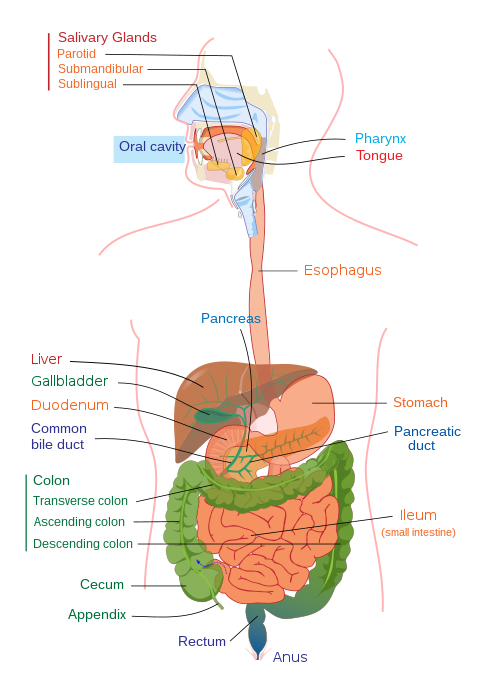 Source: cancerindex.org
Source: cancerindex.org
This is a network of. The small intestine is an organ that performs a major function in the digestion and absorption of nutrients in the human body. The small intestine carries out most of the digestive process absorbing almost all of the nutrients you get from foods into your bloodstream. The small intestine has three parts. The small intestine is the location in the body where the majority of the nutrients from ingested food are absorbed.
 Source: muhealth.org
Source: muhealth.org
The way Zetia works is it reduces cholesterol absorption from the small intestine so there is less cholesterol delivered to the liver. The process can take up to five hours. Your small intestine makes digestive juice which mixes with bile and. 7 rows Small intestine. These enzymes are produced in the salivary glands in the mouth in the pancreas and in the intestinal cells.
 Source: cancer.ca
Source: cancer.ca
This means that it passes. Common conditions associated with the small intestine include. The small bowel small intestine The small bowel or small intestine is around 6 8 m long and roughly 2cm wide. This is a network of. The small intestine absorbs and digests 90 of the food and the rest gets processed collectively in the large intestine and the stomach.
 Source: britannica.com
Source: britannica.com
The small intestine carries out most of the digestive process absorbing almost all of the nutrients you get from foods into your bloodstream. In the small intestine enzymes substances produced by the body break down nutrients such as carbohydrates proteins or fats into their building blocks. Systematically breaks food down. Food passes from the stomach into the duodenum which is the tube that leads from the stomach into the intestines. See more articles in category.
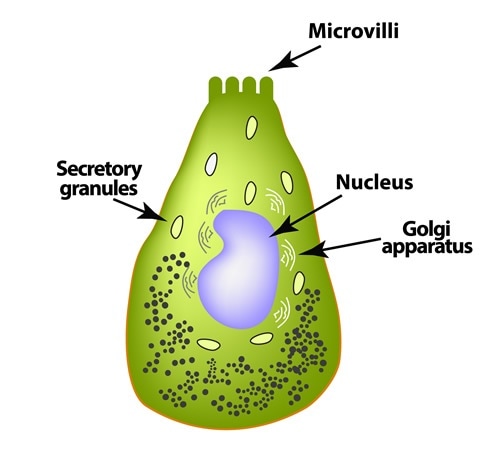 Source: news-medical.net
Source: news-medical.net
Three major classes of nutrients pass through the small intestine. If playback doesnt begin shortly try restarting your device. Then stronger wave-like contractions push the food farther down your digestive system. The small intestine carries out most of the digestive process absorbing almost all of the nutrients you get from foods into your bloodstream. The small intestine is the part of the intestines where 90 of the digestion and absorption of food occurs the other 10 taking place in the stomach and large intestineThe main function of the small intestine is absorption of nutrients and minerals from.
 Source: mayoclinic.org
Source: mayoclinic.org
Digested food passes through the wall of the intestine into the blood vessels which then distribute the nutrition first. The small intestine also called the small bowel is part of the digestive tract. These movements are known as peristalsis. How the Small Intestine Works The small intestine or small bowel is a hollow tube about 20 feet long that runs from the stomach to the beginning of the large intestine. 7 rows Small intestine.
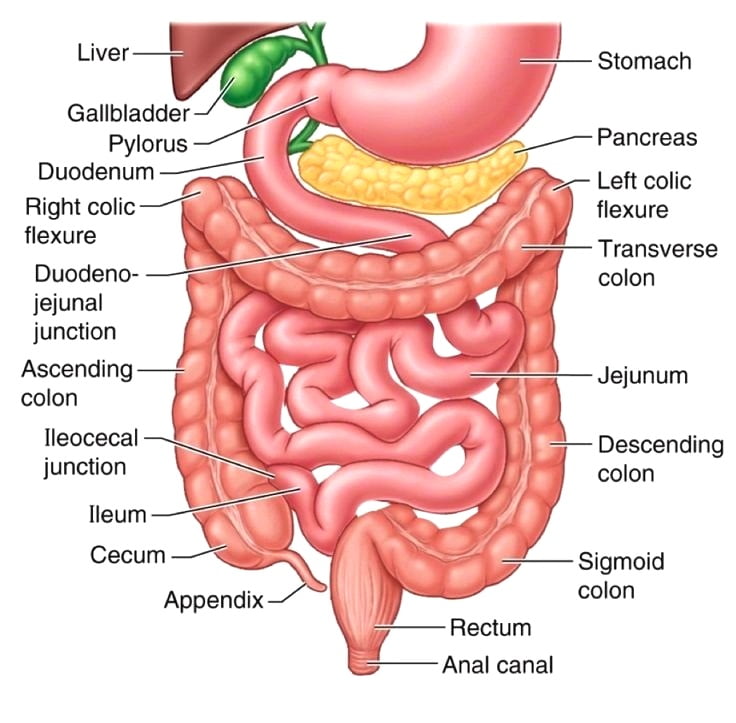 Source: advancedhealing.com
Source: advancedhealing.com
The small intestine is where most of the long process of digestion takes place. Food passes from the stomach into the duodenum which is the tube that leads from the stomach into the intestines. The way Zetia works is it reduces cholesterol absorption from the small intestine so there is less cholesterol delivered to the liver. Food broken down by the stomach moves into the small intestine which absorbs nutrients and sends them into the bloodstream. The small intestine is the location in the body where the majority of the nutrients from ingested food are absorbed.
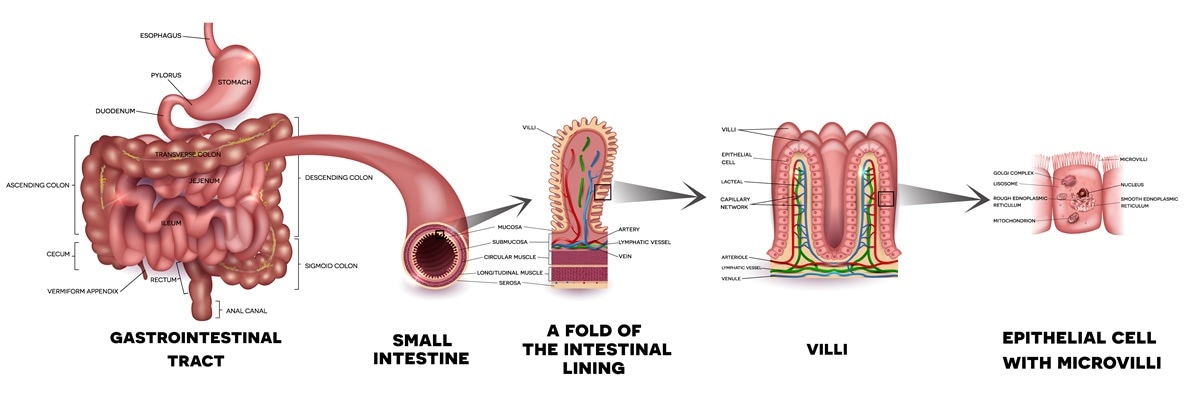 Source: news-medical.net
Source: news-medical.net
Your enteric nervous system controls the movements in your small intestine. After you eat a meal your small intestine contracts in a random unsynchronized manner. The answer is simple. The small intestine carries out most of the digestive process absorbing almost all of the nutrients you get from foods into your bloodstream. The food then passes through the jejunum and.
 Source: healthline.com
Source: healthline.com
Food moves back and forth and mixes with digestive juices. These enzymes are produced in the salivary glands in the mouth in the pancreas and in the intestinal cells. It does this because the small intestine has a highly integrated nervous system called the enteric nervous system. This organ connects the stomach and the large intestine and is the longest part of the digestive system. The answer is simple.
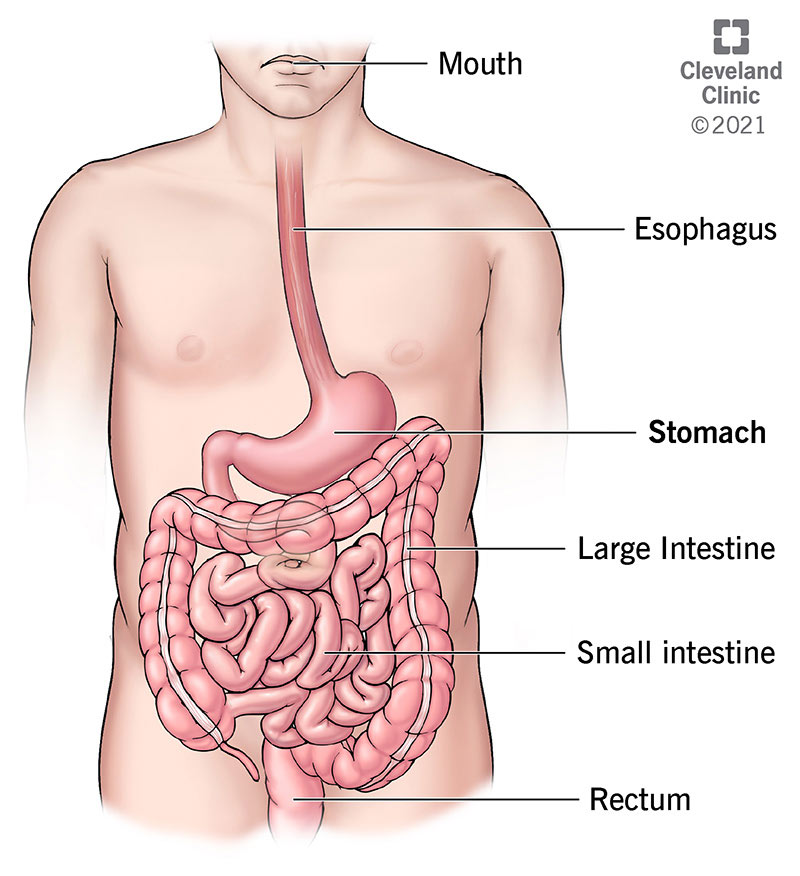
After you eat a meal your small intestine contracts in a random unsynchronized manner. Digested food passes through the wall of the intestine into the blood vessels which then distribute the nutrition first. Food broken down by the stomach moves into the small intestine which absorbs nutrients and sends them into the bloodstream. The duodenum the jejunum and the ileum. These folds are covered with villi or tiny projections that have even smaller microvilli on them.
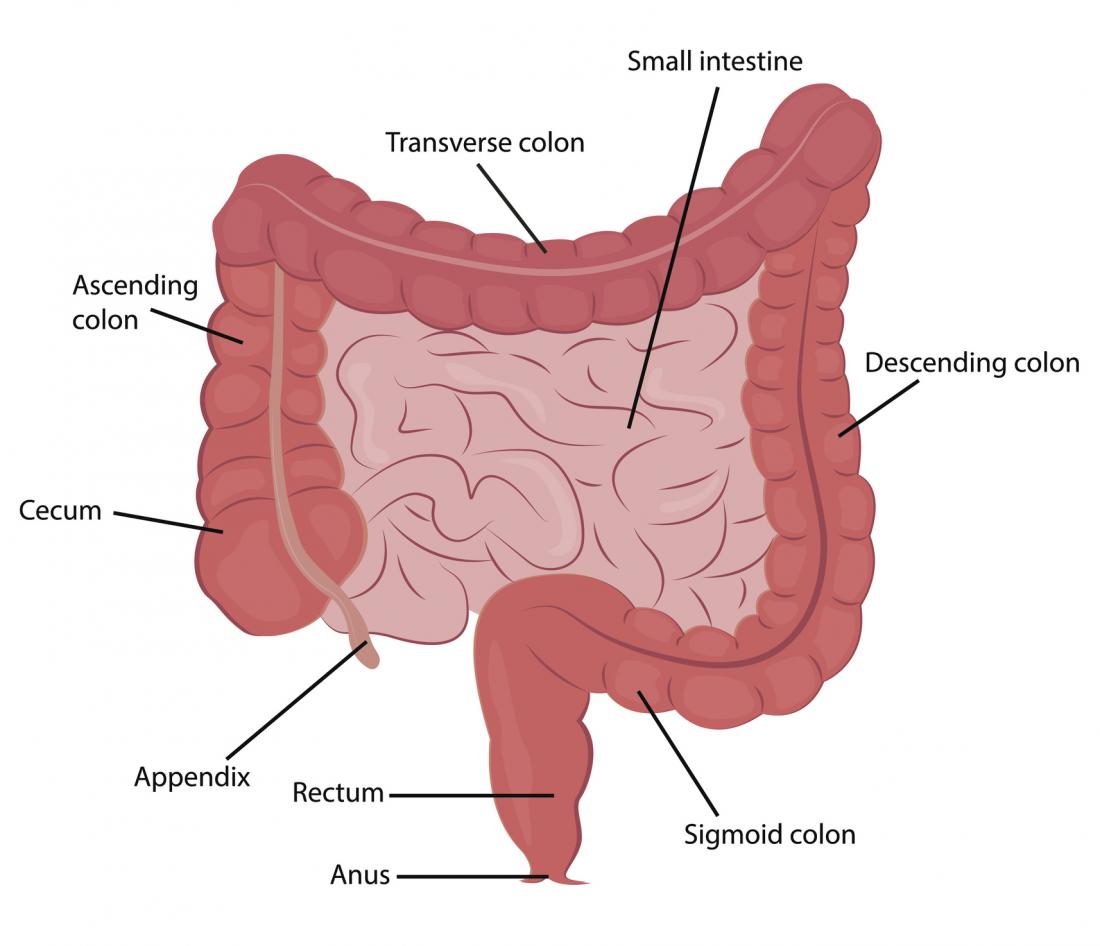 Source: medicalnewstoday.com
Source: medicalnewstoday.com
This means that it passes. The small bowel small intestine The small bowel or small intestine is around 6 8 m long and roughly 2cm wide. If playback doesnt begin shortly try restarting your device. This organ connects the stomach and the large intestine and is the longest part of the digestive system. How do stomach and intestines work together.
 Source: britannica.com
Source: britannica.com
The food then passes through the jejunum and. The way Zetia works is it reduces cholesterol absorption from the small intestine so there is less cholesterol delivered to the liver. The small intestine is the part of the intestines where 90 of the digestion and absorption of food occurs the other 10 taking place in the stomach and large intestineThe main function of the small intestine is absorption of nutrients and minerals from. As food being digested travels through it the. Your enteric nervous system controls the movements in your small intestine.
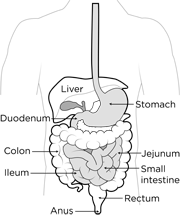 Source: seattlechildrens.org
Source: seattlechildrens.org
The small bowel small intestine The small bowel or small intestine is around 6 8 m long and roughly 2cm wide. Digested food is absorbed in the small intestine. Theres a lot involved in all this. The small intestine is where most of the long process of digestion takes place. This means that it passes.
 Source: cell.com
Source: cell.com
The stomach stores swallowed food and liquid mixes the food and liquid with digestive juice it produces and slowly empties its contents called chyme into the small intestine. Systematically breaks food down. Your enteric nervous system controls the movements in your small intestine. Digested food is absorbed in the small intestine. These enzymes are produced in the salivary glands in the mouth in the pancreas and in the intestinal cells.
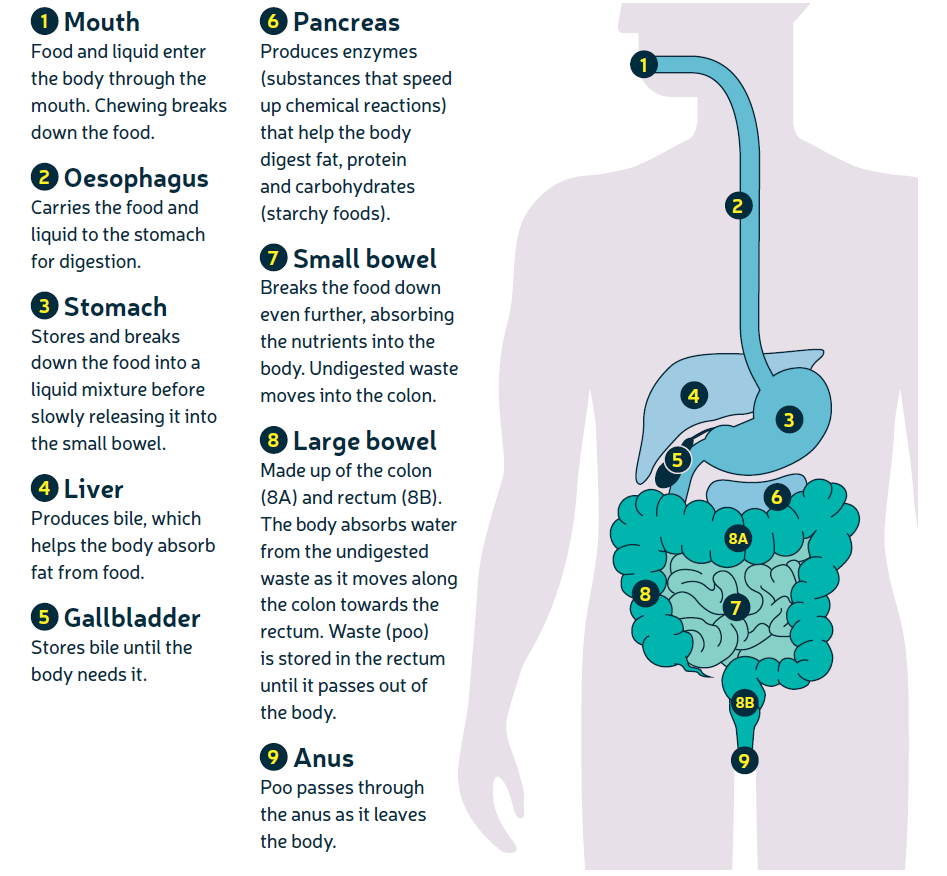
The intestines are divided into two parts. Systematically breaks food down. The small intestine also called the small bowel is part of the digestive tract. Then stronger wave-like contractions push the food farther down your digestive system. The small bowel small intestine The small bowel or small intestine is around 6 8 m long and roughly 2cm wide.

How do stomach and intestines work together. How the Small Intestine Works The small intestine or small bowel is a hollow tube about 20 feet long that runs from the stomach to the beginning of the large intestine. In the small intestine enzymes substances produced by the body break down nutrients such as carbohydrates proteins or fats into their building blocks. See more articles in category. The walls of the small intestine make digestive juices or enzymes that work together with enzymes from the liver and pancreas to do this.
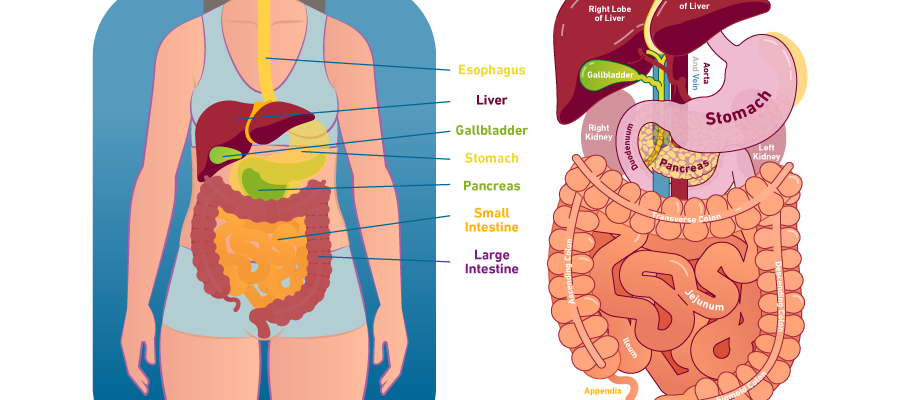 Source: templehealth.org
Source: templehealth.org
Food broken down by the stomach moves into the small intestine which absorbs nutrients and sends them into the bloodstream. The small bowel small intestine The small bowel or small intestine is around 6 8 m long and roughly 2cm wide. Your enteric nervous system controls the movements in your small intestine. The small intestine also called the small bowel is part of the digestive tract. There are two parts of digestion- one is mechanical that involves chewing grinding mixing and churning.
This site is an open community for users to do sharing their favorite wallpapers on the internet, all images or pictures in this website are for personal wallpaper use only, it is stricly prohibited to use this wallpaper for commercial purposes, if you are the author and find this image is shared without your permission, please kindly raise a DMCA report to Us.
If you find this site beneficial, please support us by sharing this posts to your own social media accounts like Facebook, Instagram and so on or you can also bookmark this blog page with the title how does the small intestine work by using Ctrl + D for devices a laptop with a Windows operating system or Command + D for laptops with an Apple operating system. If you use a smartphone, you can also use the drawer menu of the browser you are using. Whether it’s a Windows, Mac, iOS or Android operating system, you will still be able to bookmark this website.






